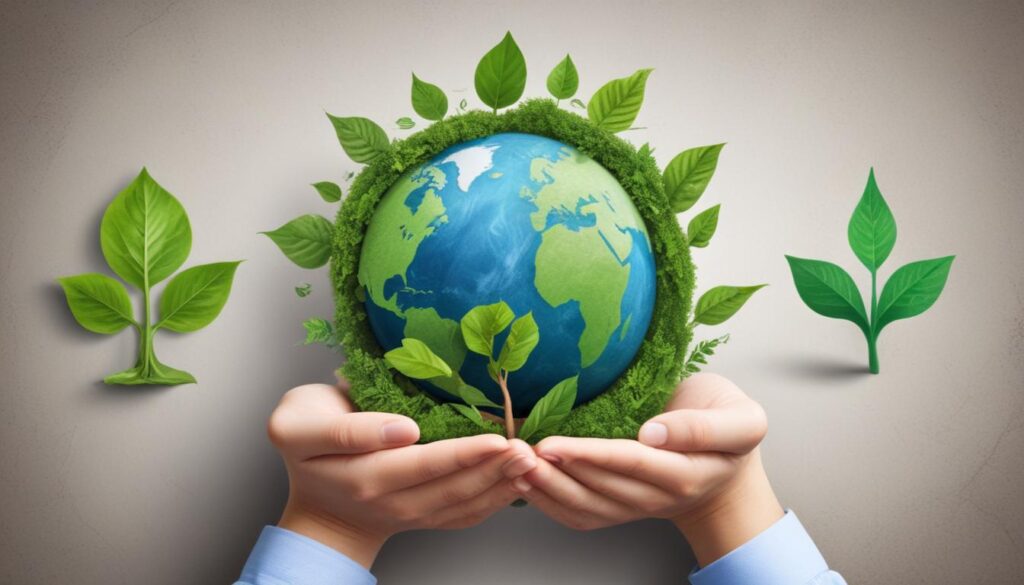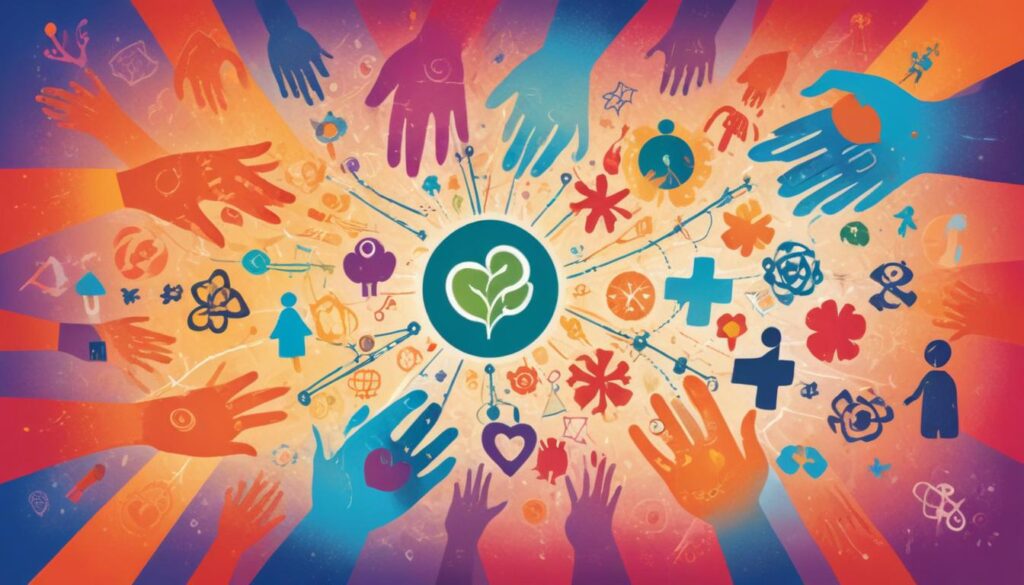The recycling industry is increasingly vital for US firms, providing cost-effective solutions and enhancing sustainability by integrating advanced technologies and fostering collaborations to promote a circular economy that reduces waste and supports environmental goals.
In the context of a thriving global economy, **recycling** practices are evolving. Have you ever wondered how your actions can contribute to a more sustainable future?
Overview of Ingka Investments
Ingka Investments, the investment arm of the Ingka Group, focuses on driving growth through sustainable practices. With significant investments in various sectors, the organization is committing to enhancing its sustainability efforts while securing profitable returns. The recent announcement of their operations in recycling is a crucial step in promoting the circular economy.
One major project is the establishment of a recycling plant in Lommel, Belgium. This facility aims to process plastic waste, transforming it into reusable materials, thus, reducing environmental impact. The plant not only supports local economies but also emphasizes the importance of sustainable resource management.
Ingka’s investments also extend to renewable energy initiatives. By supporting solar and wind energy projects, Ingka is positioning itself as a leader in reducing carbon footprints. These investments reflect a broader strategy that combines profitability with environmental responsibility, a balance that is increasingly sought after in today’s business environment. Companies worldwide can learn from Ingka’s approach, illustrating how to align profit motives with societal benefits.
Impact of EU Recycling Plant in Lommel
The EU recycling plant in Lommel is set to significantly impact both the local economy and the broader sustainability efforts across Europe. This facility aims to turn plastic waste into reusable materials, thereby contributing to the growth of the circular economy. By reducing reliance on new plastic production, it addresses the pressing challenges associated with plastic pollution.
The plant will create numerous job opportunities for the local community, fostering economic development and enhancing the region’s employment landscape. Employment in recycling not only supports economic stability but also promotes awareness about sustainability practices among workers and the community at large.
Moreover, this initiative aligns with the EU’s ambitious goals to lower greenhouse gas emissions and promote environmental stewardship. The plant’s operations will minimize landfill usage and decrease overall waste, demonstrating a proactive approach to tackling climate change. Local governments and businesses can collaborate with this facility to adopt innovative recycling methods that benefit both the community and the planet.
As the demand for sustainable practices grows, the Lommel recycling plant serves as a model for other regions. It showcases how investment in recycling infrastructure can lead to comprehensive benefits, including job creation, economic resilience, and environmental protection.
Circular Economy and Its Importance
The circular economy is a transformative approach that reimagines the traditional linear model of production and consumption. In a linear economy, resources are taken, used, and disposed of; however, a circular economy aims to minimize waste through continuous reuse, regeneration, and recycling of materials.
This model emphasizes sustainable practices that benefit both the environment and the economy. By maximizing the lifecycle of products, businesses can reduce costs associated with raw materials and waste management. It also fosters innovation, encouraging companies to develop new technologies and solutions that prioritize sustainability.
Moreover, adopting a circular economy can significantly contribute to climate change mitigation. Through reduced material extraction and lower emissions associated with production, this system supports global efforts to achieve net-zero targets. Additionally, it promotes job creation in sectors such as recycling, remanufacturing, and repair.
Consumer behavior is also evolving, with more individuals seeking sustainable products and brands that align with their values. This shift is creating a market for circular solutions, highlighting the necessity for industries to adapt. By embracing the principles of a circular economy, businesses not only enhance their competitive edge but also play a crucial role in building a more sustainable future for all.
Current State of Global Waste Recycling
The current state of global waste recycling reflects a complex landscape influenced by various factors, including technological advances, policy changes, and consumer behavior. Many countries are now recognizing the importance of recycling as a critical component of sustainable development.
In recent years, initiatives aimed at improving recycling rates have gained momentum, driven by increasing environmental awareness. However, significant challenges remain. For instance, many regions still face issues related to inadequate recycling infrastructure and insufficient participation from consumers. Without robust systems in place, valuable materials often end up in landfills, exacerbating pollution and resource depletion.
On the technology front, innovations such as advanced sorting systems and AI-driven recycling methods are paving the way for more efficient processes. These technologies streamline operations by increasing the accuracy of sorting recyclable materials, which ultimately enhances the overall recovery rate.
Moreover, international trade dynamics impact recycling markets. The ban on importing waste by certain countries has prompted many nations to rethink their recycling strategies, emphasizing the need for local processing capabilities. As the global economy shifts, enhancing the recycling landscape is essential for meeting future sustainable goals and reducing environmental impact.
Benefits to US Manufacturers
US manufacturers stand to gain significantly from the emerging recycling initiatives and practices linked to the circular economy. By integrating recycling into their operations, these businesses can not only reduce material costs but also enhance their sustainability profiles.
One of the primary benefits is the potential for cost savings. Utilizing recycled materials often proves cheaper than sourcing virgin resources, allowing manufacturers to improve their profit margins. This economic advantage is especially crucial in a highly competitive market where every dollar counts.
Moreover, adopting recycling practices can bolster a manufacturer’s image. As consumers increasingly prioritize sustainability, businesses that actively engage in recycling can attract environmentally-conscious customers. This enhanced reputation can lead to increased brand loyalty and a stronger market position.
In addition, recycling efforts help compliance with growing regulatory requirements. Governments are implementing stricter environmental standards, and manufacturers who proactively adopt recycling practices are better positioned to meet these regulations, avoiding potential fines and penalties.
Lastly, embracing recycling fosters innovation within manufacturing processes. Companies are encouraged to develop new products from recycled materials, generating opportunities for new revenue streams. In the long term, these advantages collectively contribute to a more resilient and sustainable manufacturing sector in the United States.
Financial and Environmental Goals of Ingka Group
The **Ingka Group** is committed to achieving significant **financial and environmental goals** that align with its vision for a sustainable future. To enhance profitability, the group integrates sustainability into its core business strategies, focusing on the circular economy to minimize waste and optimize resource use.
A key financial goal is to increase investments in sustainable projects, such as renewable energy sources and recycling initiatives. By doing so, Ingka not only seeks to strengthen its market position but also aims to contribute to global efforts to combat climate change. These investments are expected to generate long-term cost savings and new revenue streams while enhancing brand reputation.
On the environmental side, Ingka targets a **50% reduction in greenhouse gas emissions** across its value chain by 2030. This ambitious goal is supported by initiatives like transitioning to energy-efficient operations and sourcing sustainable materials. The group’s commitment to ending single-use plastics demonstrates their proactive approach to environmental stewardship.
Moreover, the Ingka Group aims to promote sustainable practices among its partners and suppliers, fostering a culture of accountability within the industry. These combined financial and environmental objectives reflect Ingka’s holistic approach, allowing it to drive positive change while remaining competitive in the global market.
Case Studies from Circular Investments
Case studies from circular investments showcase practical applications of sustainable practices that significantly impact industries and communities. One notable example is a company that transformed its production processes to reclaim waste materials. By implementing advanced recycling technologies, this business reduced its reliance on virgin resources, demonstrating the benefits of the circular economy.
An exemplary case is the partnership between a manufacturing firm and a local recycling facility. This collaboration enabled the manufacturer to source recycled materials at a lower cost while promoting environmental responsibility. The initiative not only cut down on production costs but also enhanced the company’s brand reputation among environmentally conscious consumers.
Another compelling case study involves a beverage company that shifted from single-use packaging to reusable bottles. This transition resulted in significant reductions in plastic waste and contributed to a more sustainable supply chain. The financial impact was equally impressive, with cost savings from material sourcing and improved customer loyalty.
These case studies highlight the value of embracing circular investments. They demonstrate that sustainability goes hand in hand with profitability, providing tangible examples of how adopting a circular approach fosters innovation, drives cost efficiencies, and responds positively to consumer demands for environmentally friendly practices.
The Role of Legislation in Recycling
The role of legislation in recycling is crucial for the establishment and enhancement of effective waste management practices. Governments worldwide recognize that strong regulatory frameworks are needed to promote recycling and discourage wastefulness. This legislative support helps create a sustainable environment by setting clear guidelines for businesses and consumers alike.
One of the primary aspects of recycling legislation includes setting ambitious recycling targets. By establishing specific goals, governments can motivate businesses to invest in sustainable practices. These targets also encourage the development of recycling infrastructure, making it easier for consumers to participate.
Moreover, legislation often includes financial incentives for companies that engage in recycling initiatives. Tax breaks and grants can help offset operational costs, making recycling more appealing and economically viable for manufacturers. Such measures not only stimulate economic growth but also foster a culture of environmental consciousness.
Additionally, regulations can address issues such as **extended producer responsibility (EPR)**, where manufacturers are held accountable for the entire lifecycle of their products. This approach ensures that companies design products with recyclability in mind, reducing waste and promoting a circular economy.
Overall, effective recycling legislation is key to achieving sustainability goals, encouraging responsible waste management, and fostering collaboration among stakeholders across various sectors.
Future Predictions for Recycling Industry
The future predictions for the recycling industry reflect a growing trend towards increased efficiency and sustainability. As technology continues to evolve, new innovations are expected to revolutionize recycling processes. Automation will play a significant role in this transformation, with advanced sorting technologies enhancing the ability to process different materials quickly.
One key trend is the rise of smart recycling systems. These systems leverage artificial intelligence and machine learning to optimize sorting and processing. This level of automation will reduce contamination rates and increase recycling rates in various sectors, including plastics and metals.
Additionally, as consumer demand for sustainable products grows, manufacturers will increasingly seek recycled materials. This shift will drive further investments in recycling infrastructure, making it more accessible for businesses and municipalities alike. Governments are likely to support these efforts through legislation and incentives, facilitating the transition to a circular economy.
Another important prediction is the global shift towards collaboration in recycling initiatives. Partnerships between private companies, governments, and non-profits will become more commonplace, fostering innovative recycling solutions. These collaborations can enhance community engagement and lead to more effective recycling programs.
Overall, the future of the recycling industry is poised for significant growth, driven by advancements in technology and a collective commitment to sustainability.
Conclusion: The Path Forward for US Firms
As the landscape of environmental responsibility continues to evolve, US firms are at a pivotal point regarding their sustainability strategies. Embracing a rigorous approach to recycling and sustainable practices is no longer optional; it is essential for competitiveness in the global market. By prioritizing circular economy principles, businesses can reduce waste and create new revenue streams.
The path forward involves investing in innovative technologies that streamline recycling processes and enhance material recovery. Utilizing advanced sorting technology and automation will allow firms to become more efficient in handling waste and sourcing recycled materials. This not only improves profit margins but also aligns with consumer expectations for eco-friendly products.
Moreover, collaboration across various sectors is vital. Partnerships between manufacturers, local governments, and non-profit organizations can foster community engagement and drive effective recycling programs. Sharing resources and knowledge will amplify efforts to build a sustainable infrastructure.
US firms must also prepare for evolving regulations and consumer demands for transparency regarding sustainability efforts. By proactively leading in responsible waste management, companies can enhance their brand reputation. Ultimately, a commitment to sustainability and recycling will not only contribute to environmental protection but will also strengthen the overall economy.
The Future of Sustainability in Business
As we move forward, it is clear that embracing sustainability and efficient recycling practices will be critical for US firms. The commitment to a circular economy is not just beneficial for the environment; it also enhances a company’s reputation and competitiveness.
By adopting new technologies and fostering collaborations, businesses can navigate the challenges of recycling. This proactive approach ensures that they remain compliant with regulations while meeting consumer demands for eco-friendly products.
Ultimately, companies that prioritize sustainability will not only contribute positively to the planet but will also unlock new growth opportunities. Focusing on these initiatives today will pave the way for a more profitable and environmentally responsible tomorrow.
In conclusion, the journey towards sustainability is ongoing, but the rewards for businesses willing to embrace change are substantial.
Frequently Asked Questions
What is the circular economy?
The circular economy is a model focused on reducing waste by reusing, recycling, and regenerating materials, promoting sustainability and resource efficiency.
How can US firms benefit from improved recycling practices?
By adopting efficient recycling practices, US firms can reduce costs, enhance their brand reputation, and comply with environmental regulations.
What technologies are transforming the recycling industry?
Innovative technologies, such as AI-driven sorting systems and automation, are enhancing efficiency and accuracy in the recycling process.
Why is collaboration important in recycling initiatives?
Collaboration between businesses, governments, and non-profits helps create effective recycling programs and fosters community engagement.
What role does legislation play in recycling efforts?
Legislation provides the necessary framework and incentives for businesses to prioritize recycling, helping to achieve national recycling goals.
How can companies prepare for future sustainability regulations?
Companies can prepare by staying informed about potential regulations and proactively implementing sustainable practices to meet consumer demands and compliance requirements.


